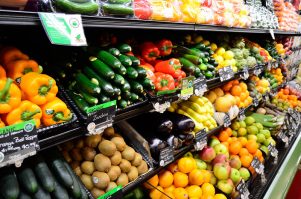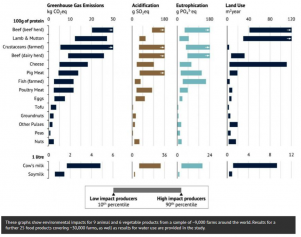The Science Behind the Wholefood Plant-Based Diet
Article By Florimond Krins
 Veganism, vegetarianism and other flexible plant-based diets have become more and more advertised and promoted through the media. While Vegans have been the advocates of an animal-free diet, mostly for ethical reasons, for decades, they are now being backed up by the scientific community praising the healthy and environmental benefits of such diets.
Veganism, vegetarianism and other flexible plant-based diets have become more and more advertised and promoted through the media. While Vegans have been the advocates of an animal-free diet, mostly for ethical reasons, for decades, they are now being backed up by the scientific community praising the healthy and environmental benefits of such diets.
The Health benefits:
First and foremost a balanced and well-planned vegetarian or vegan diet has been recognised by many health and dietary organisations to be healthy and appropriate for individuals during all stages of the life cycle[1]. But it is not just appropriate, it has significant health benefits when it comes to reduce the risk of cardiovascular disease to patients who have already experienced strokes or heart-attacks[2].
Animal farming on an industrial scale has increased the use of antibiotics to help prevent infections and diseases in the battery farmed chickens, pigs and cattle. To that end between 40% and 70 % of the antibiotics produced are given to livestock, depending on the country’s own regulation. This has had the inconvenient side-effect of making bacteria more anti-biotic resistant but also it makes our “waste water” more difficult to clean and the “solid waste” almost impossible to reuse for agricultural purposes.
For everything meat base products bring to your plates, plants can do it at a lesser cost for your purse but most especially for the planet[3].
To save the environment:
Decreasing meat consumption and processed food by switching to a wholefood plant-based diet is probably the most effective way an individual has to decrease his or her carbon footprint, but also decrease water consumption and water pollution (4,see chart below)
The forests and jungles burning have been seen on the news times and times over this year. This is due to climate change and more extreme weather patterns but also because of a global agriculture pushing towards animal grazing and animal feed production.
The ethical conundrum:
One does not have to be a vegan at heart to feel compassionate towards the mistreatment of our animal food stock, by just seeing them as produce we fail as human beings to see the bigger picture: Nature cannot be seen and treated as a factory. It is time to come back to a more sustainable and respectful approach to agriculture.
The depletion of our seas, the burning of the forests, and the destruction of natural wildlife habitats in general is accelerating a mass extinction on a global scale. It is therefore important to know what we put on our plates and the consequences behind it.
As philosophers, responsible human beings, we must look to behave ethically and compassionately. With the new year coming, maybe the best resolution you can make, for yourself and the planet is to eat more of your vegetables and beans and less meat and fish.
Image Credits: By Open Grid Scheduler / Grid Engine | Flickr | CC0 1.0
The entity posting this article assumes the responsibility that images used in this article have the requisite permissionsImage References
Feature Image By Open Grid Scheduler / Grid Engine | Flickr | CC0 1.0 Image 2 : www.ox.ac.uk/news/2018-06-01-new-estimates-environmental-cost-food#
Permissions required for the publishing of this article have been obtained
Article References
1. www.ncbi.nlm.nih.gov/pubmed/19562864 2. The China Study by Dr T. Collin Campbell and Dr Thomas M. Campbell. 3. Julia Moskin, Your Questions About Food and Climate Change, Answered How to shop, cook and eat in a warming world.





What do you think?